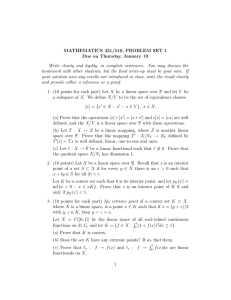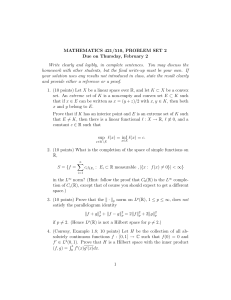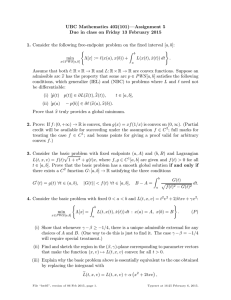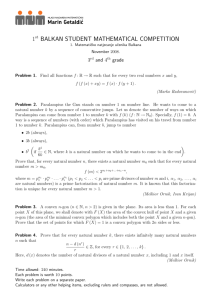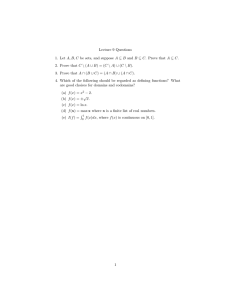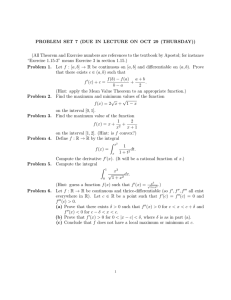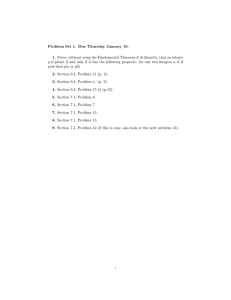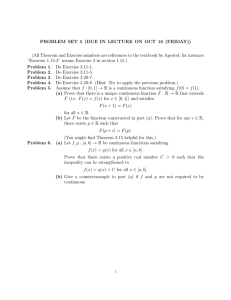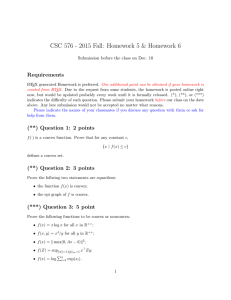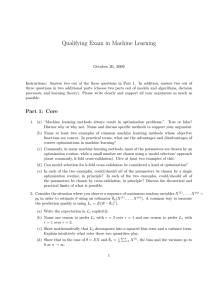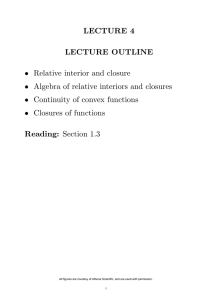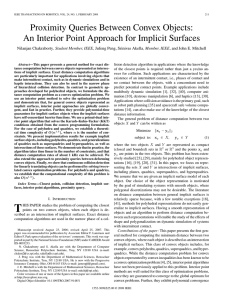MATHEMATICS 421/510, PROBLEM SET 1 Due on Wednesday, January 20
advertisement
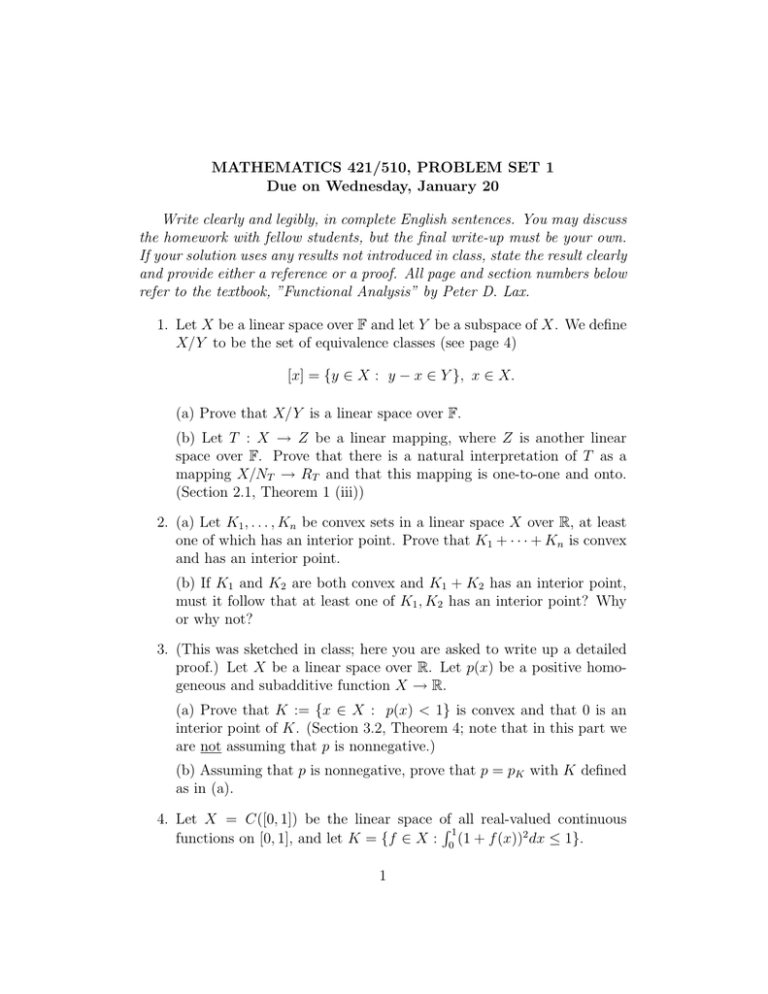
MATHEMATICS 421/510, PROBLEM SET 1
Due on Wednesday, January 20
Write clearly and legibly, in complete English sentences. You may discuss
the homework with fellow students, but the final write-up must be your own.
If your solution uses any results not introduced in class, state the result clearly
and provide either a reference or a proof. All page and section numbers below
refer to the textbook, ”Functional Analysis” by Peter D. Lax.
1. Let X be a linear space over F and let Y be a subspace of X. We define
X/Y to be the set of equivalence classes (see page 4)
[x] = {y ∈ X : y − x ∈ Y }, x ∈ X.
(a) Prove that X/Y is a linear space over F.
(b) Let T : X → Z be a linear mapping, where Z is another linear
space over F. Prove that there is a natural interpretation of T as a
mapping X/NT → RT and that this mapping is one-to-one and onto.
(Section 2.1, Theorem 1 (iii))
2. (a) Let K1 , . . . , Kn be convex sets in a linear space X over R, at least
one of which has an interior point. Prove that K1 + · · · + Kn is convex
and has an interior point.
(b) If K1 and K2 are both convex and K1 + K2 has an interior point,
must it follow that at least one of K1 , K2 has an interior point? Why
or why not?
3. (This was sketched in class; here you are asked to write up a detailed
proof.) Let X be a linear space over R. Let p(x) be a positive homogeneous and subadditive function X → R.
(a) Prove that K := {x ∈ X : p(x) < 1} is convex and that 0 is an
interior point of K. (Section 3.2, Theorem 4; note that in this part we
are not assuming that p is nonnegative.)
(b) Assuming that p is nonnegative, prove that p = pK with K defined
as in (a).
4. Let X = C([0, 1]) be the linear space of
continuous
R 1 all real-valued
2
functions on [0, 1], and let K = {f ∈ X : 0 (1 + f (x)) dx ≤ 1}.
1
(a) Prove that K is convex.
(b) Define extreme points of a convex set as in Chapter 1, page 6. Does
the set K in (a) have any extremal points? If so, find them.
R1
(c) Prove that `x : f → f (x) and `∗ : f → 0 f (x)dx are linear
functionals on X.
(d) Find a linear functional ` on X such that `(f ) < `(g) for all f ∈ K,
where g(x) ≡ 1 on [0, 1].
2
